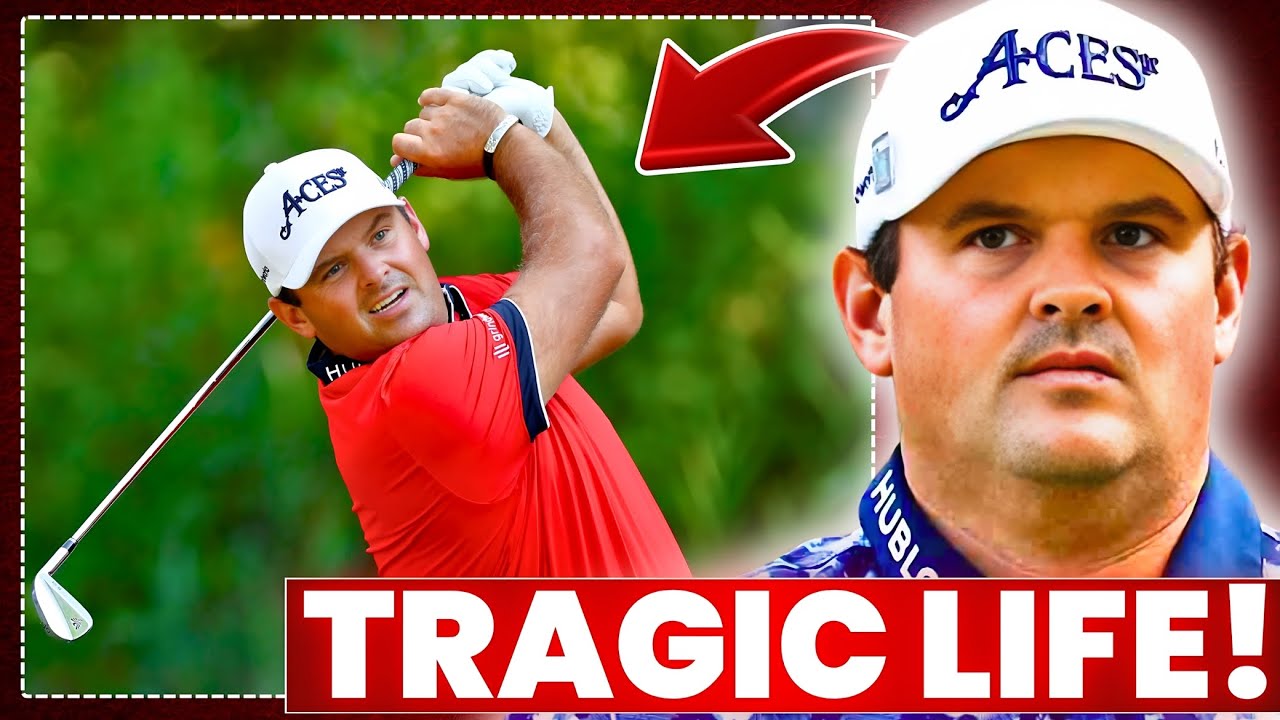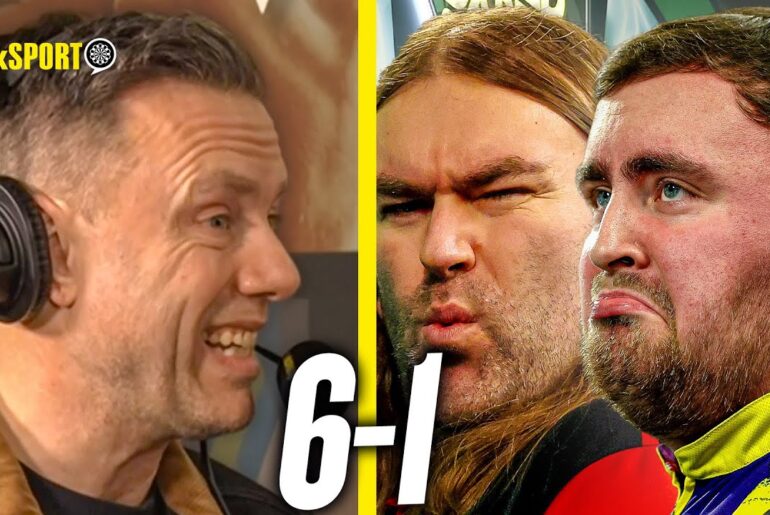Patrick Reed’s story is one of golf’s most dramatic falls from grace. Once a Masters champion and Ryder Cup hero known as Captain America, he seemed destined for greatness. But behind the victories came controversy cheating accusations, family estrangement, legal battles, and a reputation that refused to heal.
In this documentary-style deep dive, we uncover how Patrick Reed went from golf’s fiercest competitor to its most polarizing figure. From college scandals and Masters glory to the Hero World Challenge penalty, LIV Golf’s backlash, and billion-dollar lawsuits, this is the full story of a player whose ambition burned bright and whose downfall came even faster.
#PatrickReed #GolfDocumentary #LIVGolf #PGATour #SportsScandal
and seen on video. Yeah, I watched it about a dozen times or so last night and again this morning. I’m just not comfortable with Patrick’s behavior around the ball. Nine PGA Tour wins, a green jacket, world number 11. Patrick Reed had it all. Fame, fortune, and respect. Then came the whispers, cheating, lawsuits, family betrayal, sponsors fled, fans turned, and golf’s golden rebel began to fall. This isn’t a comeback story. It’s a slow motion collapse. Patrick Reed’s story begins in San Antonio, Texas, where he was born on the 5th of August, 1990. From a young age, he showed signs of rare competitive fire, the kind that later made him both admired and controversial in equal measure. As a teenager, he was already dominating junior circuits, winning the 2006 Junior Open Championship and earning Rolex AJA All-America Honors three straight years in 2005, 2006, and 2007. Coaches described him as driven, fearless, and unapologetically confident. In 2008, Reed took his talents to the University of Georgia, joining one of the most competitive college golf programs in the country. But his freshman year would end in scandal and mark the beginning of a reputation that would follow him for the rest of his career. That same year, he was arrested for underage drinking and possessing a fake ID. Placed on probation and fined by the court. It was a small town college infraction on paper, but for a rising golf prodigy, it was a public setback. However, the legal trouble was just the surface. According to author Shane Ryan, who detailed Reed’s early years in his 2015 book, Slaying the Tiger, teammates accused him of cheating during a qualifying round. Ryan wrote that during a team qualifier, Reed hit a ball deep into the rough, but allegedly tried to play another ball closer to the fairway, one that wasn’t his. When he approached the spot, he found another ball sitting closer to the fairway and was preparing to hit it when several of his teammates confronted him. Ryan wrote, “The allegations didn’t end there.” Ryan also reported that several items went missing from the Georgia locker room that same fall, a watch, a Scotty Cameron putter, and $400 in cash. The next day, Reed allegedly showed up with a watt of money, leading a teammate to confront him. Reed has always strongly denied those claims. In a 2024 interview with Golf.com, he dismissed them entirely. “I have no idea where that came from.” “Absolutely no idea,” he said. Both coaches even signed statements saying that, “No, I have never stolen or cheated ever.” Reed told the Golf Channel years earlier that his dismissal from Georgia had nothing to do with theft or cheating, only alcohol violations tied to his probation. Whatever the truth, Reed left the University of Georgia and enrolled at Augusta State University, just 2 hours from the hallowed grounds of Augusta National. At Augusta State, Reed rebuilt both his career and reputation on the course. He became the team’s emotional core. Known for his fiery competitiveness and ability to rise under pressure, he led the team to back-to-back NCAA championships in 2010 and 2011, going a perfect 6 in match play, a feat that instantly restored his image among coaches and fans. Reed turned professional in 2011, and it didn’t take long for him to prove that his talent was real. On the 18th of August 2013, he captured his first PGA Tour victory at the Windham Championship, defeating Jordan Speath in a playoff. The following season, he exploded onto the scene at the 2014 Humanana Challenge, setting a PGA Tour record for the lowest 54 hole score relative to par with rounds of 636363, a staggering 27 underpar total. From there, Reed joined Elite Company. He became just the fifth golfer since 1990 to earn three PGA Tour wins before turning 24, joining Tiger Woods, Phil Mickelson, Rory Mroy, and Sergio Garcia. And at 23 years and 216 days, he became the youngest player ever to win a World Golf Championship, capturing the 2014 WGC Cadillac Championship. But with success came controversy once again. Standing in front of reporters after that win, Reed boldly declared himself one of the top five players in the world. The problem, he was ranked 20th globally and had never played in a major championship. The statement made headlines everywhere and immediately painted him as brash and cocky. For Reed, though, it wasn’t arrogance, it was belief. “You have to think you’re the best,” he once said. But in Golf’s polite world of understatement, Patrick Reed’s self-confidence was already breaking the rules. Reed earned the nickname Captain America for his writer Cup performances. At the 2016 Rder Cup, he defeated Rory Mroy in singles. The 8th of April 2018 delivered Reed’s defining moment. He shot 69666771 for 15 under 273 to win the Masters tournament by one stroke over Ricky Fowler. The victory was his sixth PGA Tour title and first major championship. To have to par the last hole to win my first major, it definitely felt right,” Reed said from Butler Cabin. But his parents, Bill and Janette, and sister Hannah, were not at Augusta National, despite living three miles away. When asked about it, Reed gave a cold response. “I’m just out here to play golf and try to win golf tournaments. Reed has not spoken to his parents or sister since marrying Justine Karine in 2012 when he was 22. He did not invite them to his wedding. His parents had expressed concerns about him marrying so young.” Reed’s family was escorted out of the 2014 US Open at Pinehurst. According to Golf Magazine, police surrounded Bill, Janette, and Hannah on the 18th hole. They ultimately were escorted off the grounds and had their tournament badges confiscated by a USGA official who, according to Janette, said he was acting on Justine’s wishes. In 2016, Justine Reed posted on Facebook accusing her in-laws of abuse. They are sick people and need help, Justine wrote. You all should pick up the book Breaking the Bonds of Adult Child Abuse. Yes, there are actual books on people like this. I am an RN and they are textbook cases. Reed’s sister Hannah responded, “I am sick and tired of Patrick, his new family, and the media portraying my family, especially my parents, as abusive and crazy people. It is devastating seeing my parents hurt and suffering from what is being posted about them.” Despite the estrangement, Bill and Janette watch their son win the Masters on television. When the final putt dropped, Janette said through tears, “I can’t believe my son is the Mast’s champion.” “It’s surreal.” Patrick Reed’s controversies didn’t end with his early career. In December 2019, during the Hero World Challenge in the Bahamas, Reed was caught on camera grounding his club twice in a waist bunker on the 11th hole. The motion moved Sand from behind his ball, violating rule eight, one of four. Officials penalized him two strokes, but Reed defended himself. I wish the cameras were actually directly on the side of me because it was in a pretty good footprint. The footage reignited long-standing accusations dating back to his college days. In January 2021, another incident unfolded at the farmer’s insurance open. Reed’s ball landed off the fairway on the 10th hole and bounced once before settling. Believing it embedded, he asked a volunteer if it had bounced. The volunteer said no. Reed then moved the ball before calling a rules official who granted relief. Though no penalty followed, critics questioned his decision to move the ball first. “When we’re out there, we can’t see everything,” Reed said. “You have to go by what the volunteers say.” In 2022, Reed joined LIIV Golf, resigning from the PGA Tour after earning over $37, million, and nine victories. The move drew sharp backlash. Brand Chambbley of Golf Channel accused LIIV players of aligning themselves with a tyrannical, murderous leader, comparing them to followers of Stalin and Hitler. Reed responded with multiple defamation lawsuits seeking over $1 billion combined against Golf Channel, Chambbley, and several media outlets including Golf Week, Fox Sports, and the New York Post. His attorney, Larry Clayman, said Reed had become the whipping boy of dishonest journalists. Courts disagreed. In November 2022, a federal judge dismissed the case, citing failure to prove actual malice. On the 10th of July 2025, the US Court of Appeals upheld the dismissal, ruling Reed’s claims were conclusory and that any further amendment would be feudal. Patrick Reed earned nine PGA Tour victories, including the 2018 Masters and two World Golf Championships. He earned more than $37 million in prize money and represented the United States in three Ryder Cups and three President’s Cups. But controversies overshadowed achievements. College cheating allegations never disappeared. The hero world challenge penalty reinforced the narrative. The embedded ball incident added fuel. Family estrangement created sympathy for his parents. The live golf move alienated traditionalists. The failed lawsuits cost him credibility. Reed continues on LIIV Golf, but his reputation remains damaged. The nickname Captain America now carries irony rather than pride.







